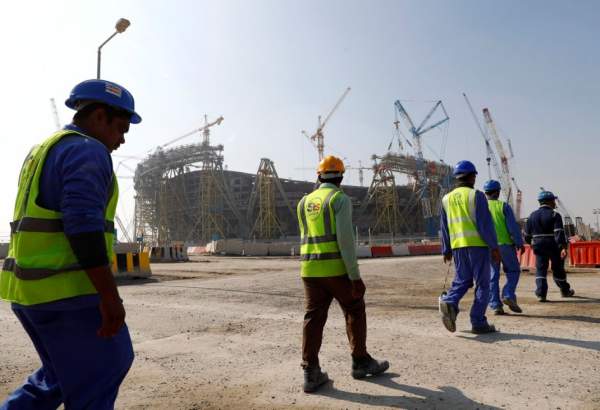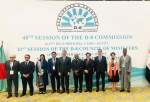The gas-rich state of Qatar, which is hosting next year’s World Cup, has been under FIFA’s scrutiny since it was awarded the contract more than ten years ago to host the 2022 competition.
“Qatar has made a number of positive reforms in recent years, partly in response to increased scrutiny after the World Cup contract was awarded,” Amnesty said in its statement on Monday. “But too often these are not properly implemented and thousands of migrant workers continue to be exploited and abused,” it added.
The rights group also called on FIFA president Gianni Infantino to implement “independent and regular” monitoring of all 2022 sites and projects to detect and prevent rights abuses.
“FIFA has an opportunity to help leave Qatar a better place for migrant workers,” it said.
Last week, Qatar increased the minimum wage for hundreds of thousands of migrant workers residing on the island to $275 a month.
Aljazeera news agency cited the International Labor Organization (ILO) as noting that more than 400,000 workers – or 20 percent of the private sector – will benefit directly from the increase in minimum wage.
In 2018, Qatar amended its residency law to allow most migrant workers to leave the country without an exit visa; and in 2020, it scrapped a rule requiring employers’ consent to change jobs.
Rights groups had long complained that the strict migrant laws in Qatar led to abuses against foreign workers in the tiny country with a population of 300,000.
Secretary-general of Qatar’s World Cup organizing committee Hassan al-Thawadi previously said that the “World Cup can be a catalyst for change, both in Qatar and in other parts of the world” to help make reforms and improve conditions for workers.
Doha says recent reforms to Qatar’s labor laws have “transformed” the country's labor market with the new non-discriminatory minimum wage providing additional financial security.
Amnesty International warned that proposals being debated by Qatar's consultative Shura Council “would undo much of the progress brought about by reforms, including by re-imposing restrictions on the rights of workers to change jobs and leave the country.”
The proposed changes, however, would require government approval.












